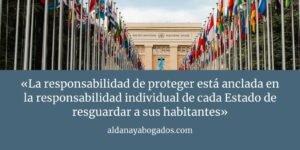Corruption is a scourge that shadows the entire world. It is defined as the abuse of entrusted power for personal use and has been catalogued as a harmful socio-economic phenomenon that undermines the foundations of society and leaves multiple negative consequences.
This crime is not exclusive to any particular country or region.Corruption has managed to permeate in various areas and can even begin with small actions such as the payment of bribes at the citizen level. It is a mistake that must be avoided in the system if social and economic development is to be achieved.
OECD's work against corruption
The Organization for Economic Cooperation and Development (OECD), founded in 1961, has set out to promote policies aimed at improving the economic and social well-being of citizens anywhere in the world. That is why it offers a space for the 36 member governments to share experiences and find the best solutions to solve common problems, such as corruption.
On this particular topic, the OECD provides a platform for nations to compare experiences, share best practices and be able to visualize what are the most important challenges to be solved to curb corruption. One of these special chapters has been open since 2007 for action against corruption in Latin America. Among the countries in the region that are part of the OECD are: Argentina, Brazil, Chile, Colombia, Costa Rica, Mexico, Panama, Paraguay, Peru, Dominican Republic and Uruguay. Venezuela is not a member of this organization so far.
The fight against corruption in Latin America has been an important aspect of the transformation of this great region. As part of this objective, which also includes the eradication of this scourge throughout the planet, the OECD is forming working teams with the International Bar Association. The intention is to train and generate professional standards for lawyers involved in the creation and incorporation of legal entities, thus inviting them to leave behind legal practices that sponsor the creation of tax havens for tax evasion, money laundering, financing of terrorism and other related crimes.
Despite the fact that each country has different regulations to guarantee transparency owners or beneficial owners of entities, lawyers can be a blind spot for the purpose of anti-corruption, as replicated in a report published by the Financial Action Task Force in 2013.













